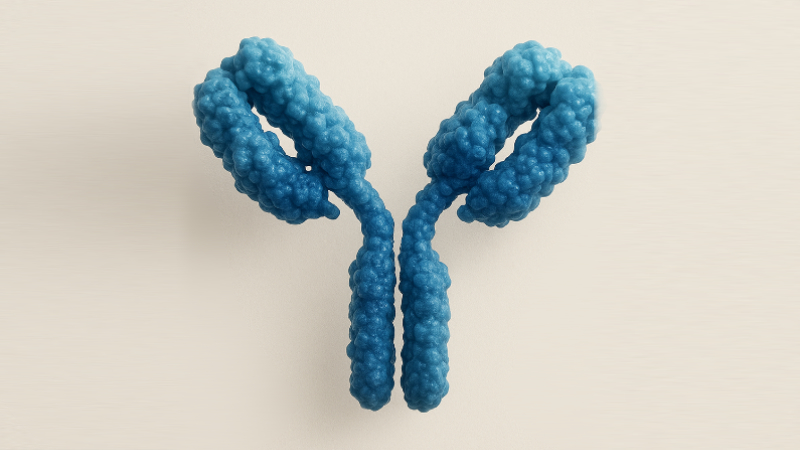AUTHORS
Mozgovicz, M., Jungbauer, A., & Lingg, N.
Immunoglobulin G (IgG) quantification is vital for medical diagnostics and the production of biopharmaceuticals like Intravenous Immunoglobulin (IVIG). Existing methods often lack the speed and compatibility needed for modern high-throughput demands. This study introduces and partially validates a new, highly efficient analytical method using affinity chromatography.
This innovative approach employs a specialized resin (POROS CaptureSelect FcXP) to rapidly and accurately measure IgG in human blood plasma. The method boasts a cycle time of just 5 minutes, reducible to 2.5 minutes, and offers excellent precision and accuracy across a wide quantification range. This advancement significantly reduces analysis time and enhances compatibility for high-throughput workflows, making it a powerful tool for accelerating biopharmaceutical manufacturing and enabling faster in-process control of vital medicines.
Unlocking faster insights: a breakthrough in IgG quantification
Immunoglobulin G (IgG) is a vital component of our immune system, defending against infections. It is also crucial for producing life-saving biopharmaceuticals like Intravenous Immunoglobulin (IVIG), which treats various immune deficiencies. Accurately and rapidly quantifying IgG levels is essential for both medical diagnostics and, critically, during the complex manufacturing of these drugs.
Traditional methods, such as nephelometry (which measures light scattering), often struggle with speed, sample compatibility, and meeting the high-throughput demands of large-scale biopharmaceutical production.
A new standard for speed and precision
Addressing these challenges, researchers Markus Mozgovicz, Alois Jungbauer, and Nico Lingg from BOKU University and the Austrian Centre of Industrial Biotechnology (acib) in Vienna have developed and partially validated an innovative and highly efficient analytical method. Their work, published in Preparative Biochemistry & Biotechnology, marks a significant advancement in IgG quantification from human blood plasma.
The core of this method is affinity chromatography, a sophisticated separation technique that uses specific binding. This approach employs a specialized material called POROS CaptureSelect FcXP affinity resin as its “stationary phase.” This resin, with its rigid backbone and larger pores, is exceptionally robust and suited for very fast analytical applications, allowing rapid flow rates without compromising performance – a key advantage over previous agarose-based resins.
The method operates in a simple “bind-elute” mode, achieving drastically reduced analysis times. A full cycle takes just 5 minutes, which can be further optimized to an impressive 2.5 minutes. This speed is coupled with outstanding analytical performance:
- Broad Quantification Range: It reliably quantifies IgG from 4 micrograms (lower limit) to 260 micrograms (upper limit), enabling direct measurement in human plasma without extensive pre-dilution.
- High Accuracy and Precision: The method shows excellent precision (low variability, 1% to 5% RSD) and a high average recovery rate of 99%, ensuring reliable results.
- Minimal Matrix Effects: Crucially, it demonstrated minimal interference from other blood plasma components. This is vital for accurate measurements across diverse samples, including those from immunodeficient patients or early stages of biopharmaceutical production.
Direct benefits for biopharmaceutical manufacturing and austria
The implications of this research are substantial, especially for the biopharmaceutical industry producing IVIG from plasma. This method offers invaluable capabilities for in-process control and at-line monitoring during large-scale manufacturing. This means manufacturers can rapidly assess IgG levels, allowing for quick adjustments, ensuring consistent quality, and improving yield. Such speed and efficiency translate directly into more streamlined, cost-effective, and ultimately, safer production of essential medicines.
This research, spearheaded by Viennese scientists, strengthens Austria’s position in cutting-edge biotechnology. By developing faster, more reliable, and industrially relevant analytical tools, Austrian science contributes significantly to global healthcare. This work not only advances scientific understanding but also fosters innovation, strengthens the national economy, and reinforces Austria’s competitive edge in the international scientific landscape, bringing tangible benefits to society through better and more accessible medicines.
